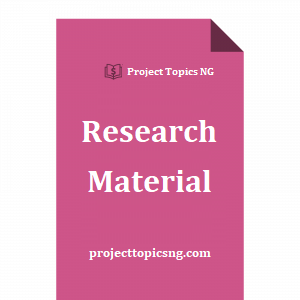Brief Introduction
The first thought of introducing manufacturing companies into various human endeavours was first mulled by the early English scientist. The aim was to ascertain the productivity and quality of goods and services.
Manufacturing may be expressed as a system of changing/converting raw materials into a finished product suitable for consumption. It involves activities in changing the reverse formation of raw materials to the formation through the use of machines.
In addition, manufacturing is rather a business-oriented operation that is of barter mechanical and technical. It is mechanical because without machines no operation could be run since each stage of production of the machine defect on one and another for effectiveness on the sense that, machines and their operating system require adequate techniques for best handling.
Manufacturing companies consist of a number of firms producing commodities that are broadly related, though it’s not often easy to know the difference between one company and the other, for example, the drinks industry the motor industry, the cotton industry, etc. This example gives a broad indication of the branch of production concerned.
Table of Content
CHAPTER ONE
1.1 Introductions
1.2 Statement of the problem
1.3 Purpose of the study
1.4 Significance of the study
1.5 statement of the hypothesis
1.6 Scope of the study
1.7 Limitation of the study
1.8 Definition of term
CHAPTER TWO
2.1 Review of related literature
2.2 Locations and setting of manufacturing
2.3 Factor
2.4 Factor affecting manufacturing
CHAPTER THREE
Research design and methodology
3.1 Sources of data
3.2 Sample use
3.3 Method of investigation
CHAPTER FOUR
4.1 Data presentation and analysis
CHAPTER FIVE
5.1 Recommendations
5.2 Conclusion


